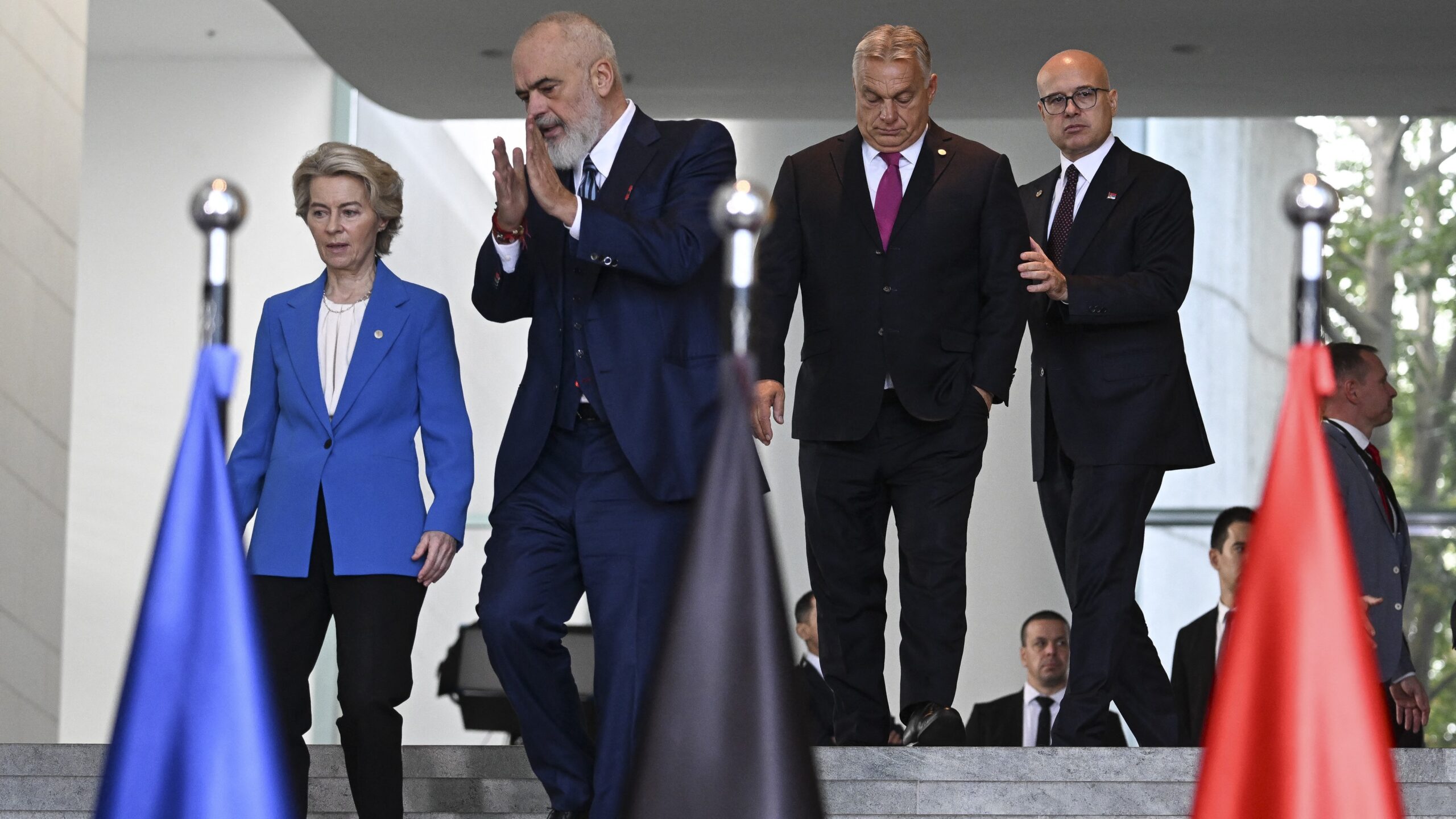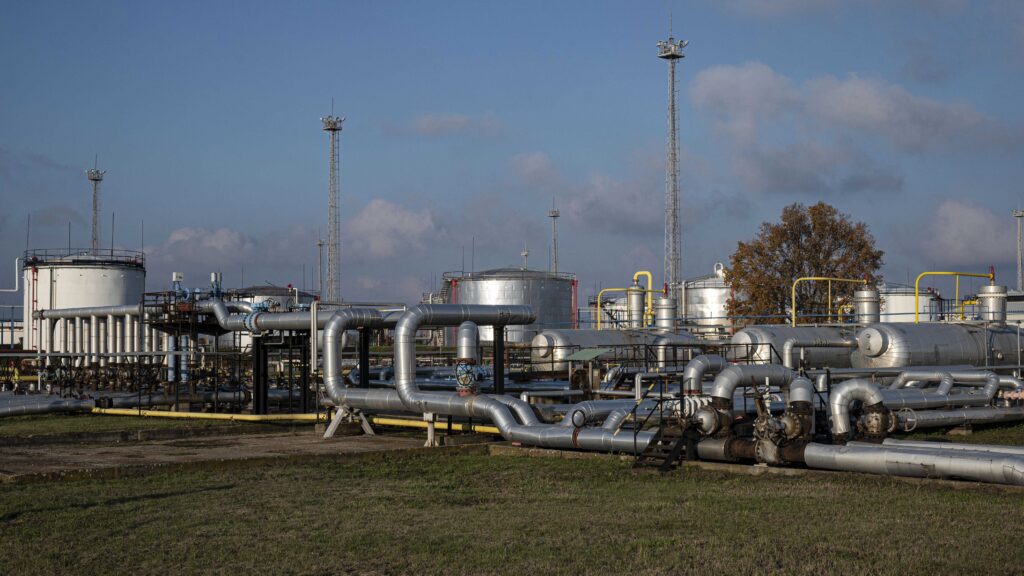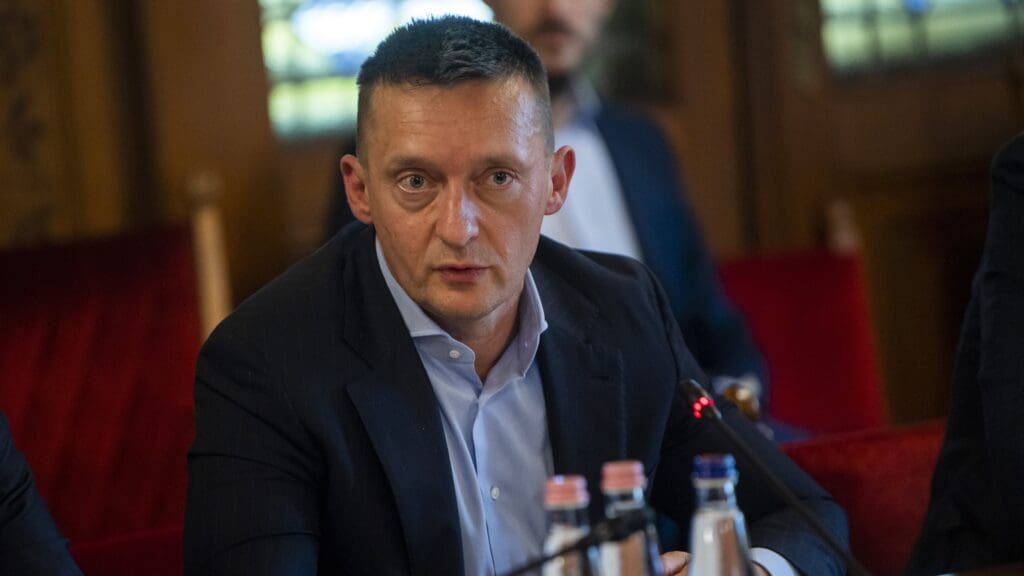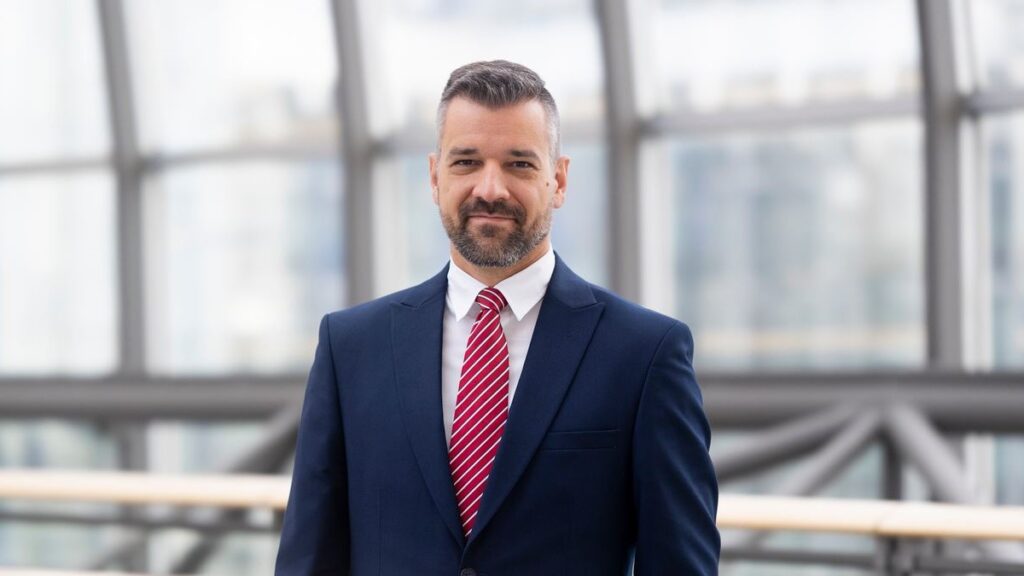The following is a translation of an article written by Tímea Zsivity, a researcher at the Europe Strategy Institute of the University of Public Service, originally published on the Five Minutes Europe blog of Ludovika.hu.
The second ministerial-level meeting of the EU accession conference with Albania was held in Luxembourg on 15 October. The European Union delegation was led by Minister of Foreign Affairs and Trade Péter Szijjártó on behalf of the Hungarian Presidency of the Council of the European Union and attended by European Commissioner for Neighbourhood and Enlargement Olivér Várhelyi. The Albanian side was represented by Prime Minister Edi Rama.
The Hungarian presidency of the Council of the European Union for the second half of 2024 intends to focus on seven thematic areas (increasing EU competitiveness, strengthening the EU’s defence policy, a coherent and merit-based enlargement policy, curbing illegal migration, shaping the future of cohesion policy, promoting a farmer-centred EU agricultural policy, and addressing demographic challenges), of which merit-based enlargement policy, increasing competitiveness, and managing migration appropriately are closely interlinked and interdependent priorities.
The meeting in Luxembourg aimed to start accession negotiations with Albania and open Cluster 1. Tirana has thus taken another step forward on the road to European integration. The EU’s main expectations of Albania are full compliance with accession chapters 23 (justice and fundamental rights) and 24 (justice, freedom, and security), the implementation of administrative reforms, the fulfilment of economic criteria, the effective fight against organized crime and corruption, and the independence of the media. It is important to note that EU accession negotiations have always taken several years, even for socio-economically and politically prepared countries.
Albania applied for EU membership in 2009. It was granted EU candidate status in 2014 and subsequently held its first intergovernmental conference with the EU in 2022, at the same time as Northern Macedonia. Albania became a member of NATO in 2009, together with Croatia, strengthening the alliance’s presence in the Adriatic region.
The European Commission’s 2023 Country Report shows that Albania is fully aligned with the Community’s foreign, security, and defence policy. The report shows that Albania, as a non-permanent member of the UN Security Council in 2022–2023, aligned itself with the EU’s position on the Russo–Ukraine war and voted to suspend Russia’s membership of the UN Human Rights Council. Albania’s position shows that it has made a strategic decision to join the EU and intends to act as a reliable partner of the Community. This intention is also confirmed by the agreement signed in November 2023 between Italian Prime Minister Giorgia Meloni and Albanian Prime Minister Edi Rama on the establishment of two refugee camps in Albania. Rama said it was a ‘burden-sharing’ with the European Union, with far-reaching implications ‘beyond the traditional division between left and right’. The Albanian–Italian plan was also backed by European Commission President Ursula von der Leyen, and German Chancellor Olaf Scholz expressed his openness to the agreement, too. Presumably, these events may also have encouraged EU leaders to start accession negotiations with Albania.
‘The European Commission’s 2023 Country Report shows that Albania is fully aligned with the Community’s foreign, security, and defence policy’
It is important to note that the EU’s relations with the Western Balkans are shaped by national policies on the one hand and geopolitical and security policy developments on the other. The EU’s uncertainty about enlargement, its non-strategic approach to the region, and the potential of the geopolitical situation in the Western Balkans have been recognized by actors outside the EU as well. The EU and its allies fear that Russia is seeking to slow down the expansion of the Community in the Western Balkans by fomenting ethnic tensions and frozen conflicts. As the EU and the states in the region face similar security challenges, the role of the region has been enhanced.
Nevertheless, the countries wishing to join must show a willingness to fulfil the obligations imposed and undertaken. At the start of the accession negotiations, Rama stated that Albania is ‘determined to meet all its future obligations’. As he put it, ‘We Albanians cannot have a plan B’ regarding EU integration.
However, the EU’s ability to make the accession process dynamic and to present a credible and attractive image of itself is also important. The growing Euroscepticism in some countries and the rise of third countries in the region can only be countered by clearly defined accession perspectives.
Related articles:
Click here to read the original article.








